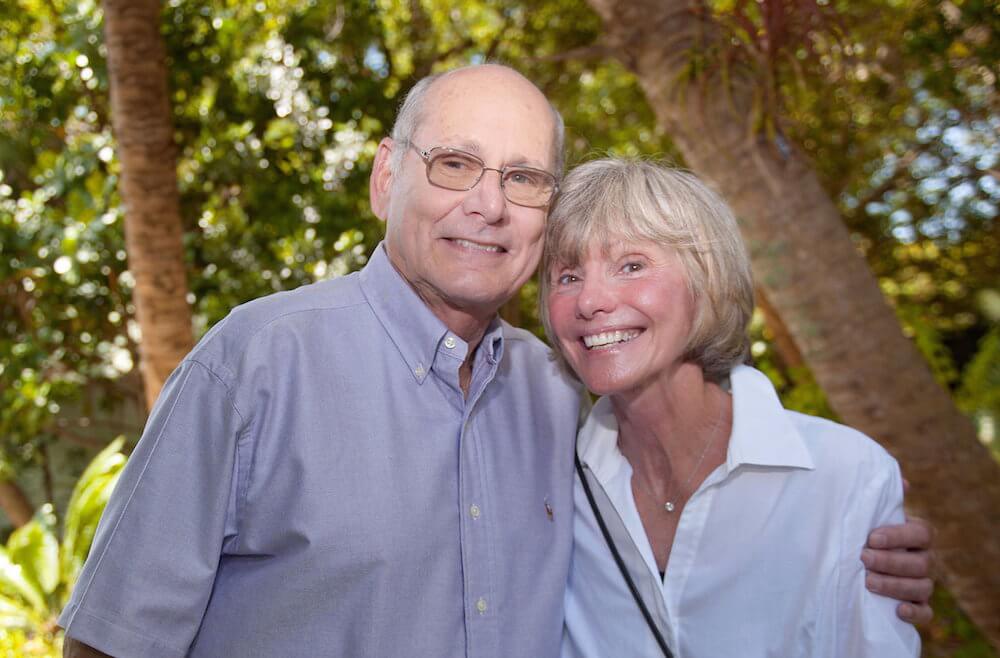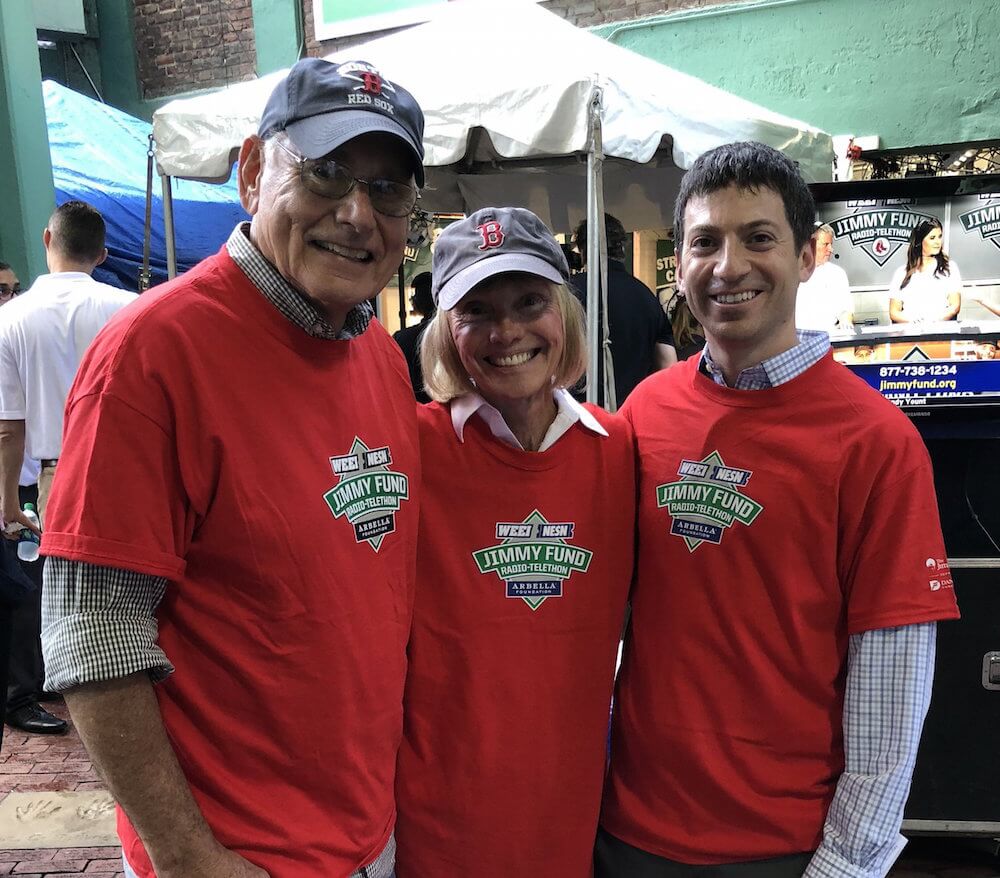Sandi and George Schussel first met on an airplane, beginning a 55-year journey that has taken them across the world, over oceans, into the mountains, and down countless paths.
When Sandi learned she had a rare blood cancer known as angioimmunoblastic T-cell lymphoma (AITL), the couple saw her diagnosis as another trail to travel. This time, however, they needed help to reach their destination, and it came from a variety of sources—including family and caregivers led by Sandi’s primary oncologist at Dana-Farber, Matthew Davids, MD, MMSc.
“As a professional nurse I’m used to being my own health advocate, but I also understand the importance of a team approach to care,” says Sandi Schussel, 77, a retired school psychologist. “It was hard to admit I needed help at first, but once I did, I had a tremendous group of heroes behind me.”

An avid hiker, skier, and sailor, who loves spending time her four granddaughters, Sandi started feeling sick in late 2014. At first, she believed her rashes and joint pains were nothing serious, but then one morning after a motorcycle ride with George she could not get out of bed and realized it was something more. PET/CT scans were suspicious for lymphoma, which was confirmed through a lymph node biopsy in March 2015.
This is when a prior stop on Sandi’s life journey—Boston’s Longwood Medical Area—became an unexpected new detour. She had acquired her nursing skills there at Peter Brent Brigham Hospital, now Brigham and Women’s Hospital, in the 1960s. Now, she was next door at Dana-Farber, where she learned that although her type of T-cell lymphoma was very rare, Davids believed it was curable.
“We match the treatment to the cancer,” says Davids. “Sometimes that means a new clinical trial with newer, targeted immunotherapies, but not always. In Sandi’s case, although her disease was rare, in some cases we can treat it successfully with a standard, long-established chemotherapy.”

Once she was on the protocol, Sandi’s pain and sickness dissipated. She credits George for being her emotional rock through the next several months, as well as handling communication, transportation, and scheduling with Dana-Farber. Their daughters also teamed up; Stacey did copious research on AITL which was essential to Sandi and George’s understanding, while Jennifer was in charge of ensuring hot meals were waiting at home after a 12-hour day of treatment.
By July 2015, all evidence of Sandi’s lymphoma was gone. More than three years later, it is still in remission—and the Schussels are filling their days with helping others fighting cancer—while still finding time for ski trips and beach walks. She can’t hike quite as far as before, but Sandi is more appreciative than ever of all she can do.
“Cancer can be a lonely disease, and we need help to cope with it,” Sandi says she advises patients. “Never hesitate to ask for help.”
As a way of thanking Davids and their entire Dana-Farber care team, and to help find the genetic drivers behind her cancer, the family established the Sandra and George Schussel Family Fund in 2017. The fund supports T-cell lymphoma research under the direction of David Weinstock, MD. “It allows for exploration of new therapeutic conditions in the laboratory using novel techniques developed here at Dana-Farber,” says Davids.
For Sandi, it also means she can go down life’s next road knowing that she and George are doing all they can to hopefully make the path smoother for others.

Hi Sandi,
It was wonderful to read your story. I was diagnosed with AITL in August of 2017, but was sick from May until a biopsy finally confirmed this for me. I knew the only place for me to go was DFCI. I failed CHOP treatments but had great success with duvelselib which put me in remission. I had a stem cell transplant in May 2018, and now, I’m doing very well .
I can’t tell you how happy I am to see how good you look and to learn you are an avid hiker, skier and sailor! I hike, walk, bike ride and love to travel. I also worked as a nurse practitioner until I became sick. Now I am retired. You’ve given me hope and I am thrilled that I finally read about someone with AITL who is in remission and likely cured. Thank you for your inspiring story, wishing you all the best!!!
Kathy, thank you for reaching out. It’s always good to connect with someone who has walked down the same path in many ways. My AITL was preceded by a 2 year bout with undiagnosed Hashimoto disease. There exists a correlation between autoimmune disease and TCL but no cause and effect relationship has been established. I have researched Duvelisib which is a promising protocol. So glad you had success. I was unable to have a stem cell transplant, not enough stems. You might research Dr. David Weinstock Lab at DFCI. They are doing an amazing amount of research in TCL. Really exciting stuff. I send you my best wishes and you know I understand. DFCI is tops. We are in the right place! Sandi